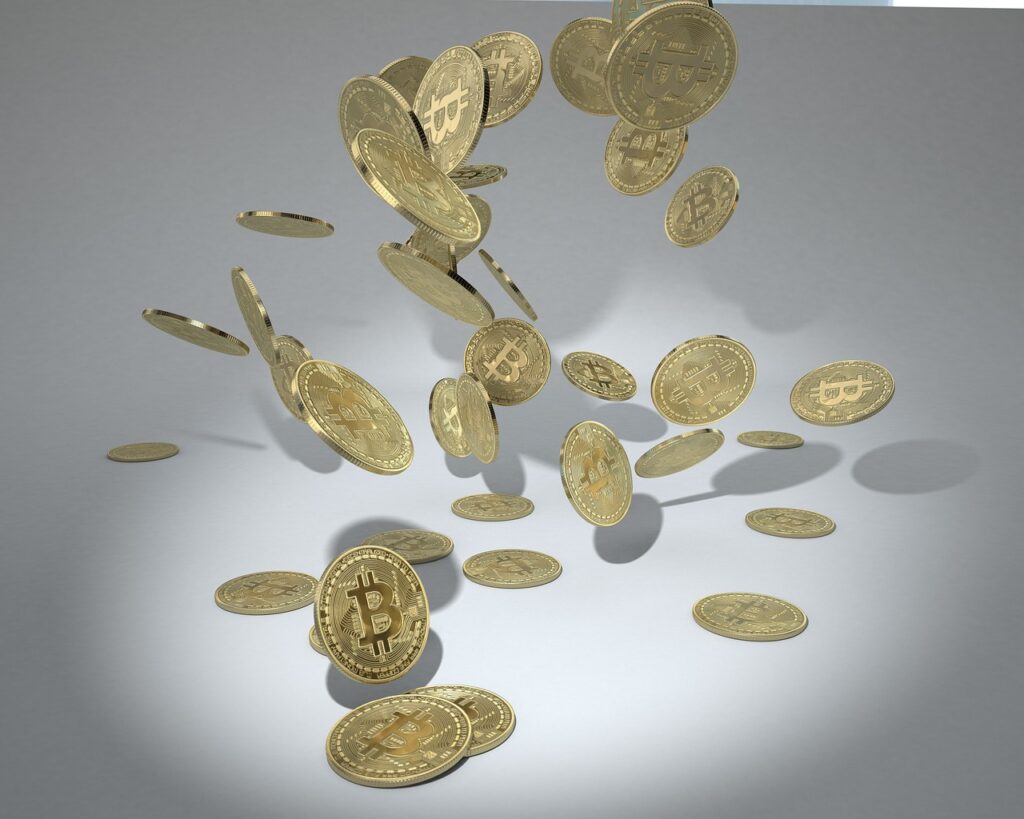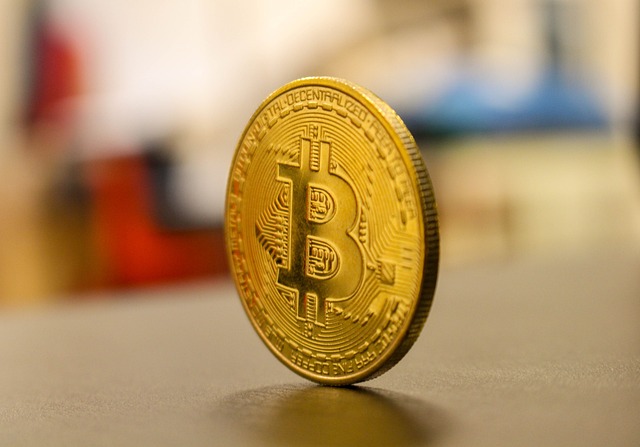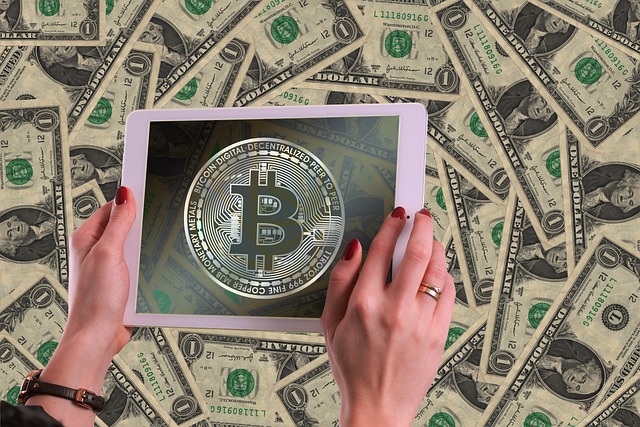Why Embrace DeFi? A Comprehensive Look at Its Benefits
Why Embrace DeFi? A Comprehensive Look at Its Benefits

Understanding the Power of DeFi
DeFi, short for Decentralized Finance, is a rapidly growing phenomenon that is revolutionizing the way individuals interact with financial services. Unlike traditional banking systems that are controlled by centralized institutions, DeFi operates on a decentralized network, where transactions are executed using blockchain technology. This decentralized nature of DeFi eliminates the need for intermediaries, such as banks and financial institutions, allowing for direct peer-to-peer transactions.
One of the key benefits of DeFi is its ability to improve financial inclusion. In many parts of the world, individuals lack access to basic financial services due to various barriers, such as high fees, limited infrastructure, and lack of identification. DeFi removes these barriers by providing an inclusive financial system that is accessible to anyone with an internet connection. This means that individuals from underserved communities can now participate in lending, borrowing, and investing activities, previously only accessible to a privileged few. By democratizing access to financial services, DeFi empowers individuals to take control of their own finances and potentially improve their economic well-being.
Improving Financial Inclusion with DeFi
Decentralized Finance, or DeFi for short, has the potential to revolutionize financial inclusion on a global scale. Traditional banking systems often fail to cater to the needs of the unbanked and underbanked populations, leaving them without access to basic financial services. However, with the advent of DeFi, individuals can now participate in a range of financial activities, such as lending, borrowing, and investing, without the need for intermediaries such as banks.
One of the key advantages of DeFi is its ability to operate on a peer-to-peer basis, eliminating the barriers that traditional financial institutions impose. This means that anyone with an internet connection and a smartphone can now have access to financial services, regardless of their geographical location or socioeconomic status. This newfound accessibility opens up a world of opportunities for those who were previously excluded from the traditional banking system, empowering them to take control of their finances and improve their overall quality of life. Through DeFi, the walls that once separated the financially excluded from the global economy are now beginning to crumble, paving the way for a more inclusive and equitable financial landscape.
Unlocking Global Opportunities through DeFi
The emergence of decentralized finance (DeFi) has opened up unprecedented global opportunities for individuals seeking financial independence and growth. Through DeFi, people from all corners of the world can now access a wide range of financial services and products without the limitations imposed by traditional banking systems. From lending and borrowing to investing and trading, DeFi platforms offer a decentralized, permissionless, and inclusive environment where anyone with an internet connection can participate.
One of the key advantages of DeFi is its ability to remove geographical barriers and open up investment opportunities on a global scale. In traditional finance, accessing investment options in different countries often requires dealing with complex regulations, high fees, and limited access. However, with DeFi, individuals can now invest in a wide array of assets, such as cryptocurrencies and digital tokens, regardless of their location. This global access allows for greater diversification, as individuals can explore opportunities from different markets and industries around the world, potentially unlocking higher returns and expanding their financial horizons. By embracing DeFi, individuals can tap into unprecedented global opportunities that were once accessible only to a select few.
Decentralization: A Key Feature of DeFi
Decentralization is at the heart of the rapidly growing DeFi ecosystem, and it is one of the key features that sets it apart from traditional financial systems. Unlike centralized systems, which rely on a single authority to control and govern transactions, DeFi operates on a decentralized network. This means that there is no single point of failure and no intermediaries to oversee and regulate transactions. Instead, the power is distributed among the participants, creating a level playing field and empowering individuals to take control of their finances.
By removing the need for intermediaries, decentralization in DeFi enables greater financial inclusion. Anyone with an internet connection can participate in DeFi activities, regardless of their location, nationality, or socioeconomic status. This opens up a world of opportunities for individuals in underbanked regions, who may have limited access to traditional banking services. With DeFi, financial services can be accessed directly through a smartphone or computer, making it easier for individuals to save, borrow, invest, and transact with others around the globe.

Increased Transparency in DeFi Transactions
DeFi, short for Decentralized Finance, has gained significant traction in recent years, offering a multitude of benefits to users worldwide. One of the key advantages that DeFi brings to the table is the increased transparency in transactions. Unlike traditional financial systems, where transactions are often obscured behind layers of intermediaries, DeFi allows for a more open and accessible approach.
In DeFi, transactions are recorded on public blockchain networks, providing an inherent level of transparency. This means that anyone can view and verify transactions, ensuring that there are no hidden or undisclosed fees. Additionally, smart contracts, which are the building blocks of DeFi, are publicly accessible and auditable, empowering users to have a clear understanding of the terms and conditions of their transactions. With increased transparency, users can make informed decisions and have confidence in the integrity of the financial systems they are participating in.
Enhanced Security Measures in DeFi
In the world of decentralized finance (DeFi), enhanced security measures play a crucial role in ensuring the safety of user funds and transactions. With traditional financial systems being plagued by frequent breaches and cyber attacks, the need for robust security in DeFi cannot be overstated. Fortunately, DeFi platforms leverage cutting-edge technologies like cryptography, smart contracts, and blockchain to provide a high level of protection to users.
One of the key security features of DeFi is the use of smart contracts. These self-executing contracts are built on blockchain networks, making them resistant to tampering and hacking. By eliminating the need for intermediaries, smart contracts reduce the risk of human error or malicious activities. Additionally, the transparent nature of blockchain technology allows users to verify and audit transactions, ensuring the integrity and immutability of the data. These security measures instill confidence in users, empowering them to participate in DeFi without the fear of compromising their financial information.
DeFi: A Potential Solution to Traditional Banking Challenges
As traditional banking faces a myriad of challenges, decentralized finance (DeFi) emerges as a potential solution that offers a breath of fresh air. The traditional banking system suffers from issues such as lengthy transaction durations, expensive fees, and limited accessibility. However, DeFi presents an alternative that can address these concerns and revolutionize the financial landscape.
With DeFi, individuals have the opportunity to regain control over their finances. Unlike traditional banks that rely on intermediaries, DeFi operates on a decentralized network, eliminating the need for middlemen. This allows financial transactions to occur directly between individuals, reducing the overall cost and time involved. Moreover, DeFi provides global accessibility, enabling individuals from different corners of the world to participate in financial activities without facing geographical limitations. By embracing DeFi, individuals have a chance to be active participants in a financial system that empowers them and offers solutions to the challenges posed by traditional banking.
DeFi: Empowering Individuals to Take Control of Their Finances
The rise of decentralized finance (DeFi) has paved the way for individuals to truly take control of their finances in a way that was unimaginable before. Gone are the days when people had to rely on banks or financial institutions for all their financial needs. With the advent of DeFi, individuals now have the power to manage and control their own money, without any intermediaries getting in the way. This newfound autonomy is revolutionizing the way people think about their finances and empowering them to make independent decisions.
Through DeFi, individuals can access a wide range of financial services and products, such as lending, borrowing, trading, and investing, all in a decentralized and transparent manner.


DeFi’s Impact on Traditional Financial Systems
Traditional financial systems have long been dominated by centralized institutions such as banks and financial intermediaries. However, with the emergence of decentralized finance (DeFi), this landscape is rapidly changing. DeFi refers to a system that operates on blockchain technology, allowing users to access a wide range of financial services without the need for intermediaries.
One significant impact of DeFi on traditional financial systems is the potential disruption it poses to current banking practices. By removing intermediaries, DeFi enables individuals to have direct control over their assets and financial transactions. This, in turn, reduces reliance on traditional banks and their associated fees and regulations. Moreover, DeFi opens up new opportunities for previously unbanked populations, as all that is needed is an internet connection to participate in the financial ecosystem. By democratizing access to financial services, DeFi has the power to significantly improve financial inclusion on a global scale.
Embracing DeFi: A Step Towards Financial Freedom
Decentralized Finance, or DeFi, has emerged as a revolutionary concept that aims to redefine the traditional financial landscape. With the potential to empower individuals and unlock new opportunities, DeFi has gained significant traction in recent years. This emerging trend has the potential to transform the way we view and interact with our finances, offering a step towards financial freedom.
One of the key benefits of embracing DeFi is the ability for individuals to take control of their own finances. In traditional banking systems, individuals are often limited by various restrictions and barriers, such as geographical limitations or stringent approval processes. However, with DeFi, anyone with an internet connection can access financial services, enabling them to manage their money without relying on centralized institutions. This level of autonomy empowers individuals to make their own financial decisions, leading to a greater sense of financial freedom and empowerment.
• Individuals can take control of their own finances
• No geographical limitations or stringent approval processes
• Access financial services with just an internet connection
• Manage money without relying on centralized institutions
• Greater sense of financial freedom and empowerment
What is DeFi?
DeFi stands for decentralized finance, which refers to the use of blockchain technology and cryptocurrencies to recreate traditional financial systems in a more decentralized and open manner.
How does DeFi improve financial inclusion?
DeFi allows anyone with an internet connection to access financial services without the need for a traditional bank account. This opens up opportunities for individuals who are unbanked or underbanked to participate in the global economy.
What kind of opportunities does DeFi unlock?
DeFi opens up a world of global opportunities by enabling individuals to access financial services and investment opportunities from anywhere in the world. It removes geographical barriers and provides equal access to financial products and services.
What is the key feature of DeFi?
Decentralization is a key feature of DeFi. It means that financial transactions and services are not controlled by a central authority, such as a bank, but rather operate on a decentralized network of computers.
How does DeFi increase transparency in transactions?
DeFi leverages blockchain technology, which provides a transparent and immutable record of all transactions. This ensures that all financial activities can be easily audited and verified by anyone, increasing trust and transparency.
What security measures are in place in DeFi?
DeFi utilizes various security measures such as smart contracts, encryption, and decentralized networks to ensure the safety of transactions and user funds. These measures reduce the risk of fraud and hacking.
Can DeFi solve traditional banking challenges?
DeFi has the potential to address many challenges faced by traditional banking systems, such as high fees, slow transaction times, and limited access to financial services. It offers a more efficient and inclusive alternative.
How does DeFi empower individuals?
DeFi puts individuals in control of their finances by allowing them to directly manage and access financial services without the need for intermediaries. It enables individuals to make their own financial decisions and have full ownership of their assets.
What impact does DeFi have on traditional financial systems?
DeFi disrupts traditional financial systems by challenging the monopoly of banks and other intermediaries. It introduces more competition, innovation, and efficiency, forcing traditional institutions to adapt or face obsolescence.
Is embracing DeFi a step towards financial freedom?
Yes, embracing DeFi is a step towards financial freedom as it provides individuals with more control, access, and opportunities in managing their finances. It offers a decentralized and inclusive alternative to traditional banking systems.
Todays Featured Product:
Buy, exchange and grow your crypto securely with a Ledger hardware wallet, combined with the Ledger Live app. It’s never been easier to keep your crypto safe and accessible. Buy direct from Ledger.com and get todays Special Offers Here.




